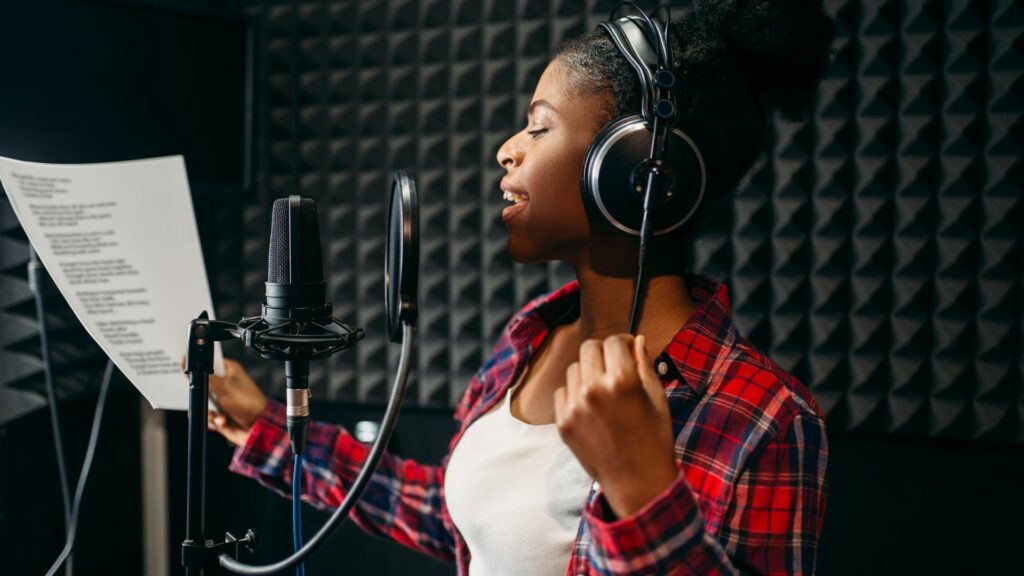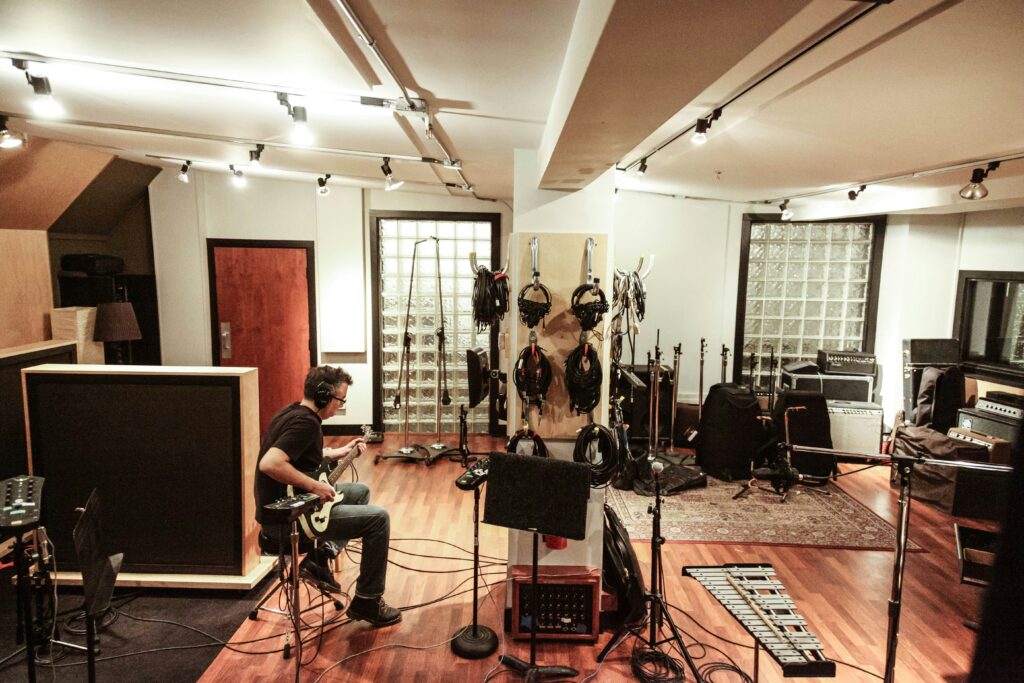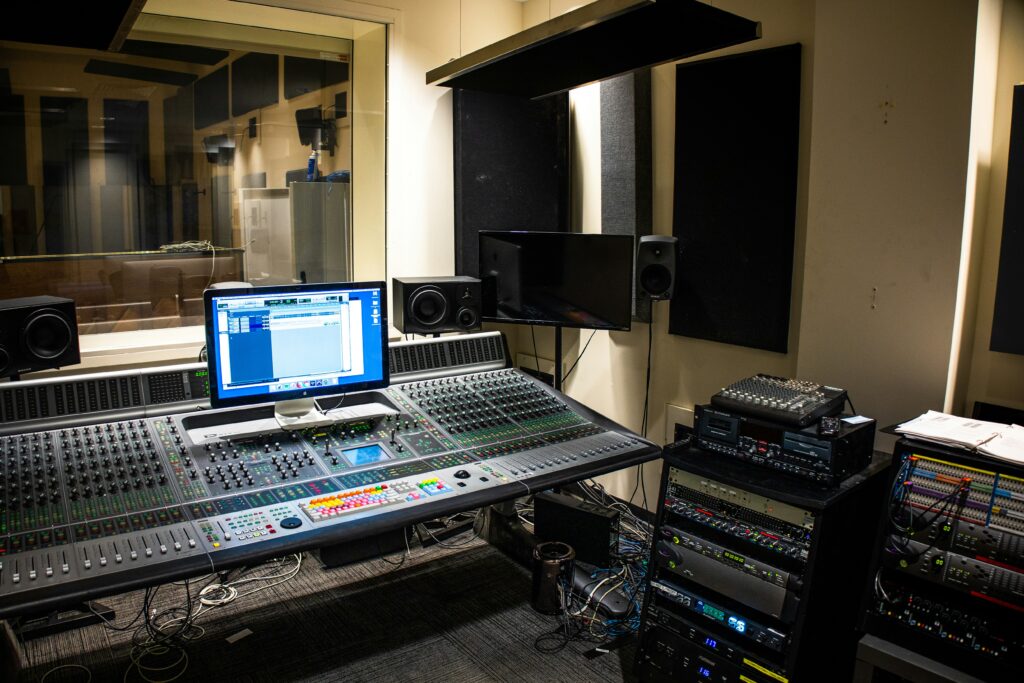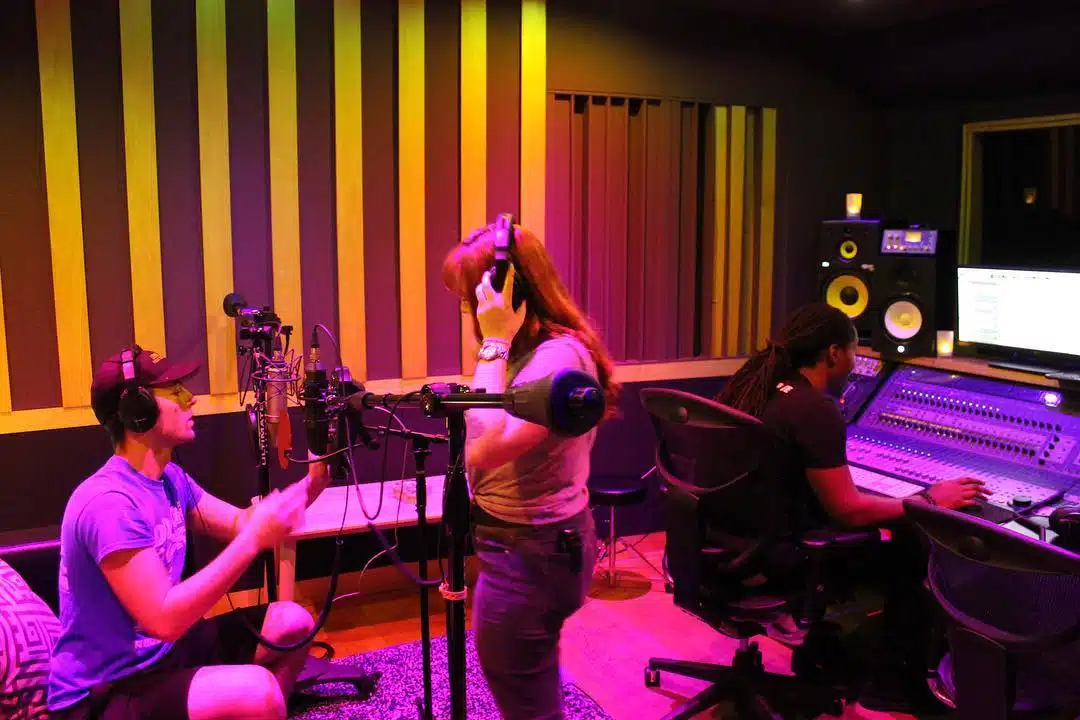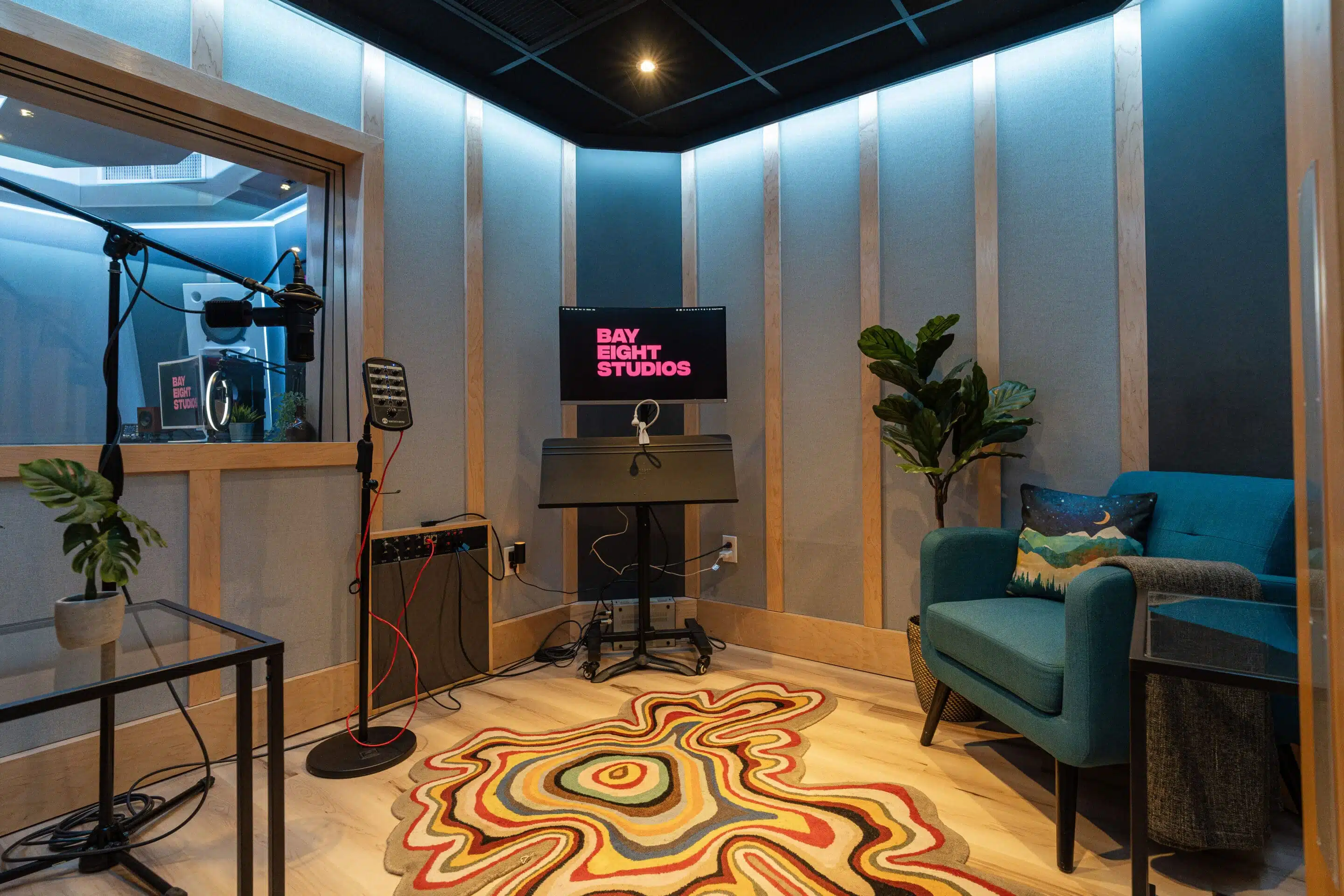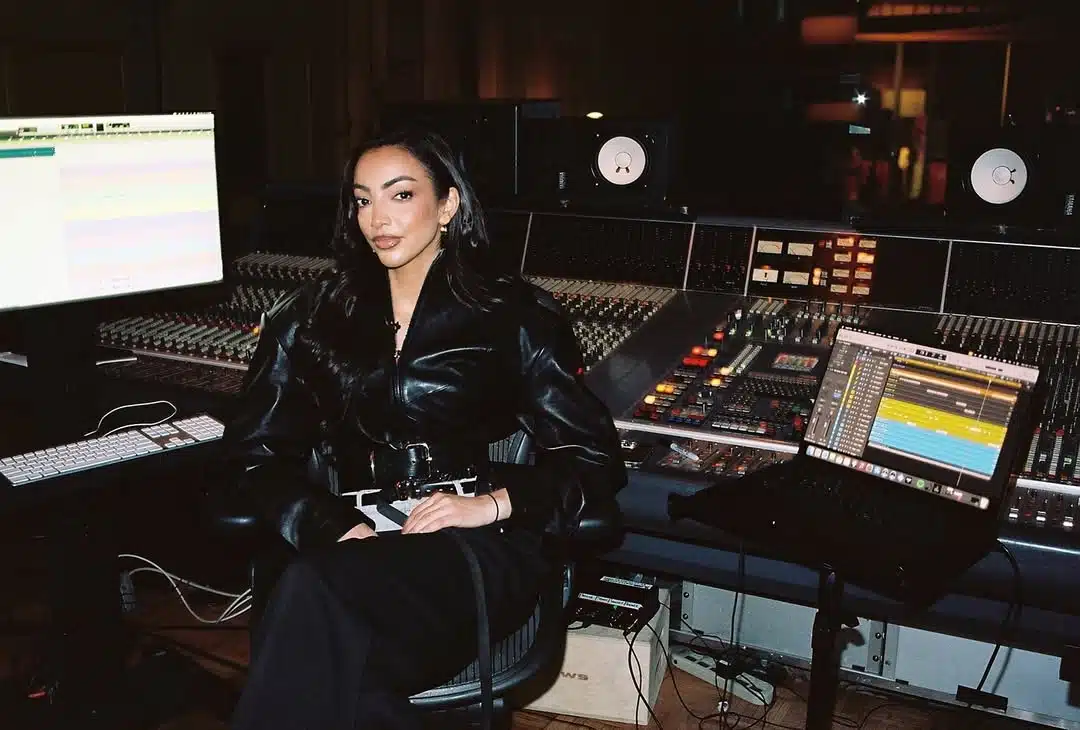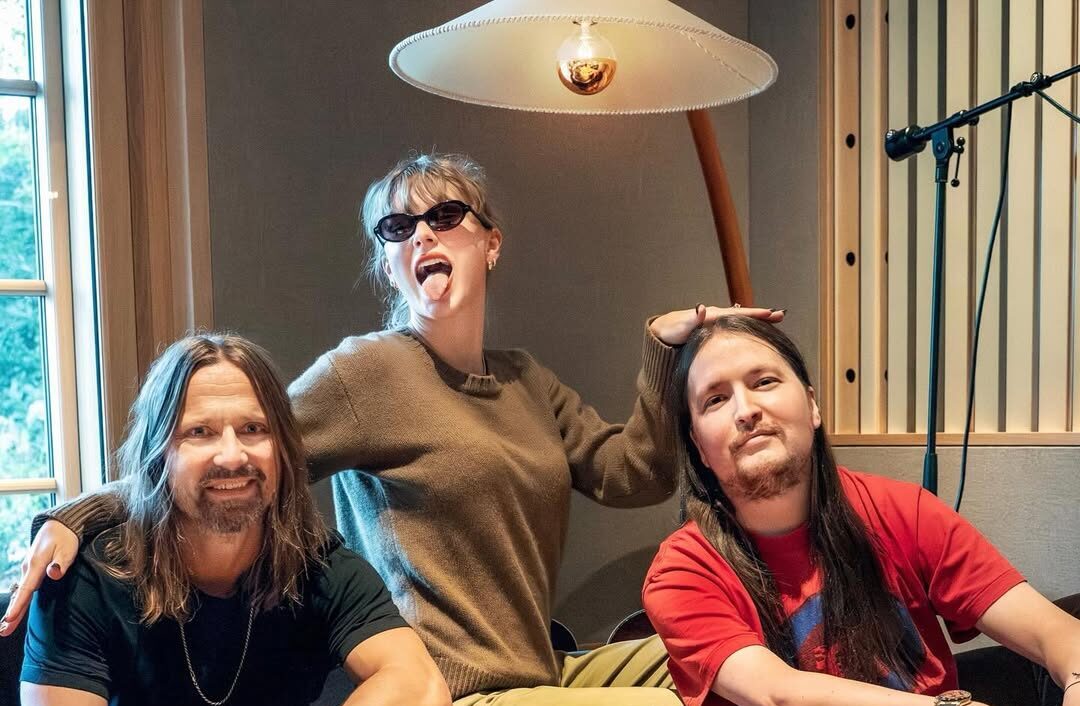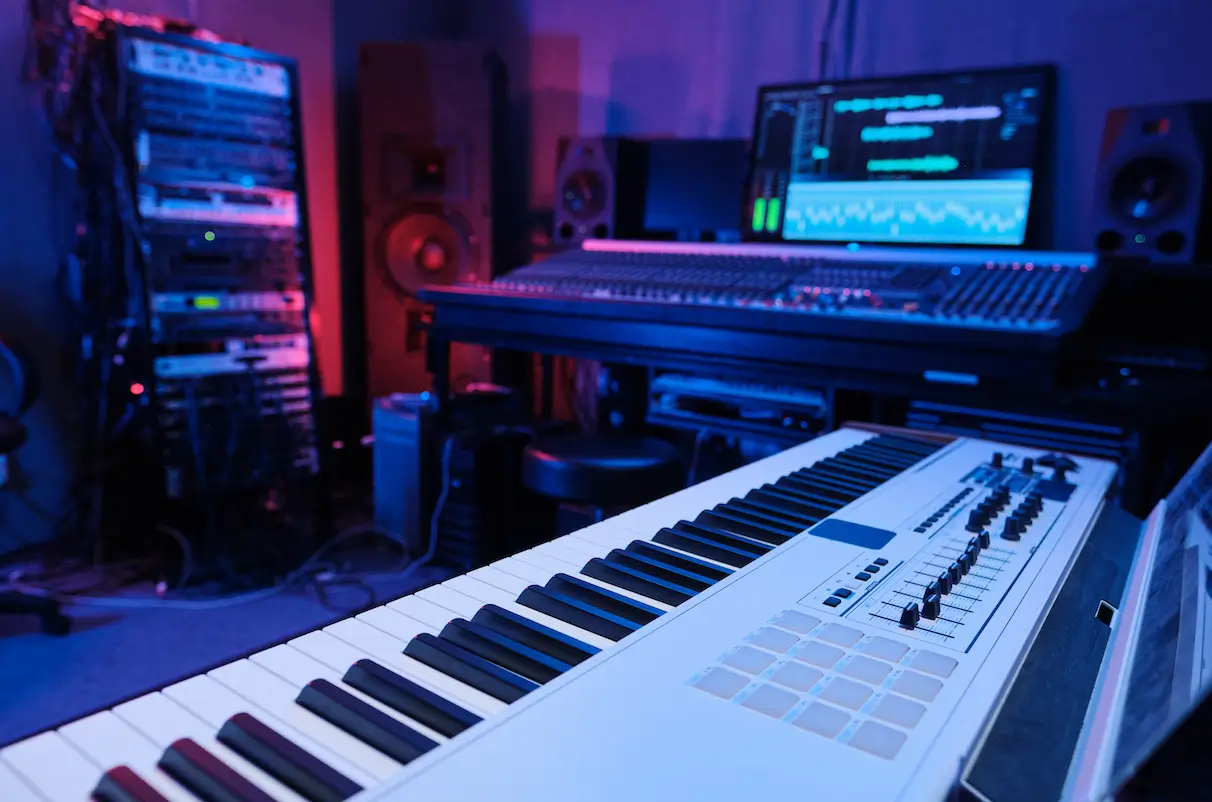Should you record in your bedroom or invest in studio time? We may be a bit biased, but we’re still happy to provide insight that will help you make the right choice. The truth is, that there are pros and cons to both options. While the best choice depends on your own circumstances, recording in a professional studio is inarguably a great way to level up your music. Here’s why the SSL Room still wins on sound in 2025.
1 Recording Studios Offer Access to Top of the Line Equipment
A professional recording studio like Bay Eight offers a controlled space and high-quality equipment like the TubeTech CL-1B, Sony C800, and Neuman U87. Professional recording artists and producers commonly use these pieces of equipment, which are known for their natural, warm, and clear sound. The U87 offers superior sound quality and versatility. This microphone is perfect for vocals, instruments, and drums. It is just one example of the high-quality and high-priced equipment you get access to in a studio.
You can make music in your home studio or even on your phone, but it is unlikely to match what you can make in a recording studio like Bay Eight Recording Studios Miami (unless you’re Steve Lacy).
2 You Won’t Have to Worry About Background Noise in a Professional Studio
Recording studios are tailored for music-making. A key factor in achieving high-quality recordings is the use of an acoustically-treated room. This controls the sound reflections and absorption in the room. Without an acoustically treated room, the sound of the recording will be affected by unwanted noise, thus making your recordings sound unprofessional.
A professional recording studio’s controlled environment minimizes background noise, such as the AC running or a dog barking. In addition to the room acoustics, high-quality studio microphones also help you capture the best sound. A professional studio gives you the power to truly hear the best version of yourself.
3 Professional Studios Will Help You Get Organized
View this post on Instagram
A DIY recording studio is excellent for experimentation. You can find your sound, get comfortable hearing your voice, and practice playing to a click track. When you’re recording in a professional recording studio, you’ll find that it’s best to go in with a plan of action.
This will push you to get projects finished, to communicate your musical choices to others, and to see yourself as a professional musician rather than just an aspiring one. You likely have a limited amount of time and money to spend on your project, but in a professional studio, that can actually be a good thing!
4 You Can Focus on the Music
Do you want to be an engineer? Do you want to be a producer? Or are you a performer? There is a lot of power in delegating. Consider what elements of the music-making process you’re interested in, and which aspects you’re not.
There is a lot of technical stuff that goes into recording. If that part doesn’t interest you, then a professional studio is the way to go. This calculation is different if you’re interested in producing for other artists. If you’re an aspiring producer, you can also benefit from working in a professional studio, but you’re probably better off making drafts of your beats at home first.
5 You Can Network and Learn from Professionals in a Music Studio
While a home studio is great for experimentation, it’s a more worthwhile investment for people who already know what they’re doing. You’ll learn a lot from your engineer, producer, and other musicians you may run into in the studio.
At home, you’re in a bubble. No unexpected run-ins with someone who becomes a great collaborator, no fellow artists introducing you to their manager after you strike up a conversation. You can learn a lot from the internet, but you learn more from real-life interactions with people in your field. The opportunity to network and ask in-person questions will help you advance more quickly.
6 You Can Test Out Equipment In A Professional Studio
Even if you’re hoping to build a home recording studio, you can benefit from treating a professional studio like your Ikea. Test out equipment, brainstorm about an optimal studio set-up, and decide which pieces are essential for you. Figure out what you like without having to buy it first. You can also get recommendations from engineers and producers (who spend a lot of time with this equipment) for your own studio.
When it comes to deciding between a professional studio vs. a home studio, consider your goals. You have more control over the setting in a home studio. However, this can put you at a disadvantage because you are remaining in your comfort zone. While a home studio makes sense for seasoned artists, beginners stand to gain a lot from being in a professional studio and interacting with people who make a living working in music. If you’re still torn, come over for a free tour of Bay Eight’s state-of-the-art Studios.

